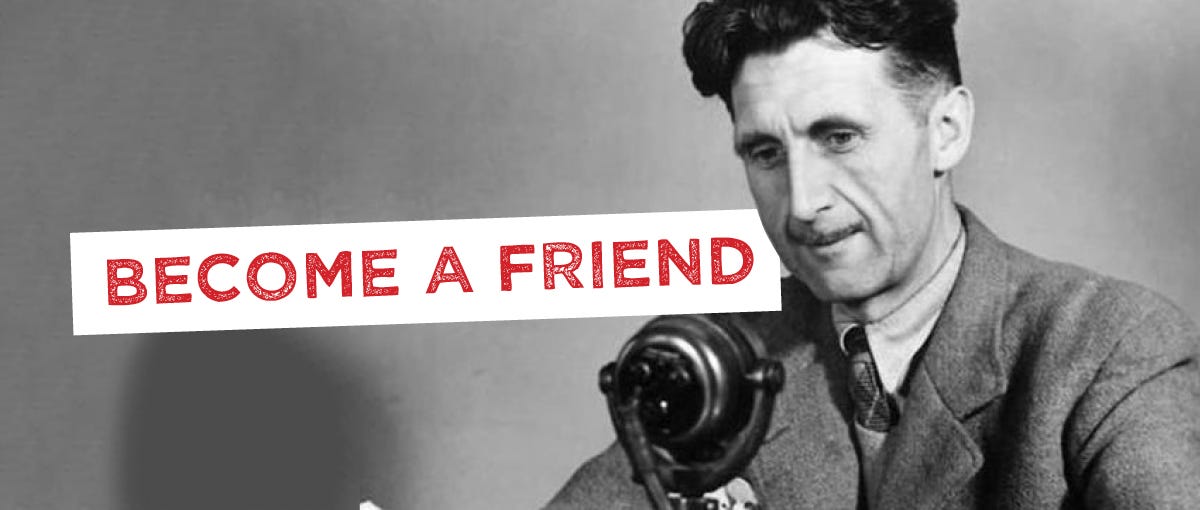"The dead must always be flattered unless they happen to be artists."
First published in Triune, 10 March 1944
In his book on [James] Joyce Mr Harry Levin gives a few biographical details, but is unable to tell us much about Joyce’s last year of life. All we know is that when the Nazis entered France he escaped over the border into Switzerland, to die about a year later in his old home in Zurich. Even the whereabouts of Joyce’s children is not, it seems, known for certain.
The academic critics could not resist the opportunity to kick Joyce’s corpse. The Times gave him a mean, cagey little obituary, and then—though The Times has never lacked space for letters about batting averages or the first cuckoo—refused to print the letter of protest that T. S. Eliot wrote. This was in accordance with the grand old English tradition that the dead must always be flattered unless they happen to be artists. Let a politician die, and his worst enemies will stand up on the floor of the House and utter pious lies in his honour, but a writer or artist must be sniffed at, at least if he is any good. The entire British press united to insult D. H. Lawrence (‘pornographer’ was the usual description) as soon as he was dead. But the snooty obituaries were merely what Joyce would have expected. The collapse of France, and the need to flee from the Gestapo like a common political suspect, were a different matter, and when the war is over it will be very interesting to find out what Joyce thought about it. Joyce was a conscious exile from Anglo-Irish philistinism. Ireland would have none of him, England and America barely tolerated him. His books were refused publication, destroyed when in type by timid publishers, banned when they came out, pirated with the tacit connivance of the authorities, and, in any case, largely ignored until the publication of Ulysses. He had a genuine grievance, and was extremely conscious of it. But it was also his aim to be a ‘pure’ artist, ‘above the battle’ and indifferent to politics. He had written Ulysses in Switzerland, with an Austrian passport and a British pension, during the 1914-18 war, to which he paid as nearly as possible no attention. But the present war, as Joyce found out, is not of a kind to be ignored, and I think it must have left him reflecting that a political choice is necessary and that even stupidity is better than totalitarianism.
One thing that Hitler and his friends have demonstrated is what a relatively good time the intellectual has had during the past hundred years. After all, how does the persecution of Joyce, Lawrence, Whitman, Baudelaire, even Oscar Wilde, compare with the kind of thing that has been happening to liberal intellectuals all over Europe since Hitler came to power? Joyce left Ireland in disgust: he did not have to run for his life, as he did when the panzers rolled into Paris. The British Government duly banned Ulysses when it appeared, but it took the ban off fifteen years later, and what is probably more important, it helped Joyce to stay alive while the book was written. And thereafter, thanks to the generosity of an anonymous admirer, Joyce was able to live a civilized life in Paris for nearly twenty years, working away at Finnegans Wake and surrounded by a circle of disciples, while industrious teams of experts translated Ulysses not only into various European languages but even into Japanese. Between 1900 and 1920 he had known hunger and neglect: but take it for all in all, his life would appear a pretty good one if one were viewing it from inside a German concentration camp.
What would the Nazis have done with Joyce if they could have laid hands on him? We don’t know. They might even have made efforts to win him over and add him to their bag of ‘converted’ literary men. But he must have seen that they had not only broken up the society that he was used to, but were the deadly enemies of everything that he valued. The battle which he had wanted to be ‘above’ did, after all, concern him fairly directly, and I like to think that before the end he brought himself to utter some non-neutral comment on Hitler—and coming from Joyce it might be quite a stinger—which is lying in Zurich and will be accessible after the war.1
All rights reserved - this extract remains under copyright in the US and may not be distributed or reused in any way without permission from the Orwell Estate.
Though Orwell couldn’t have known at the time, Joyce had helped “perhaps a dozen” people flee from Nazi Germany before he died.







I greatly relished: "Between 1900 and 1920 he had known hunger and neglect: but take it for all in all, his life would appear a pretty good one if one were viewing it from inside a German concentration camp."